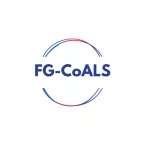The E3N-Generations study relies on a community of families, a family cohort that will eventually have 200,000 participants.
It extends the E3N study which has been actively following since 1990 (30 years!) 100,000 women, by inviting their children, the fathers of those children and their grandchildren to participate in turn.
E3N-E4N is one of only two epidemiological studies in the world of this magnitude bringing together families across three generations.
The members of the same family have genes, habits and living places in common. This vast community of families is a powerful research tool for unraveling what is genetic, lifestyle or environmental in our health.
The study will provide a better understanding of what exposes us to chronic diseases or protects us from them, by comparing the evolution of the health of different groups within the cohort. Researchers are interested in cancers, cardiovascular diseases, inflammatory bowel diseases, diabetes, asthma, Parkinson's disease, depression, anxiety, endometriosis, but also aging well.
The study is involved with other cohorts in research consortia to analyze such topics on a larger scale. That is the case of the European EPIC consortium on cancer (more than 500,000 subjects) and the French SAPRIS study on Covid19 (139,000 participants from 5 cohorts).
This research will make it possible to drive future public health policies and refine prevention messages.









